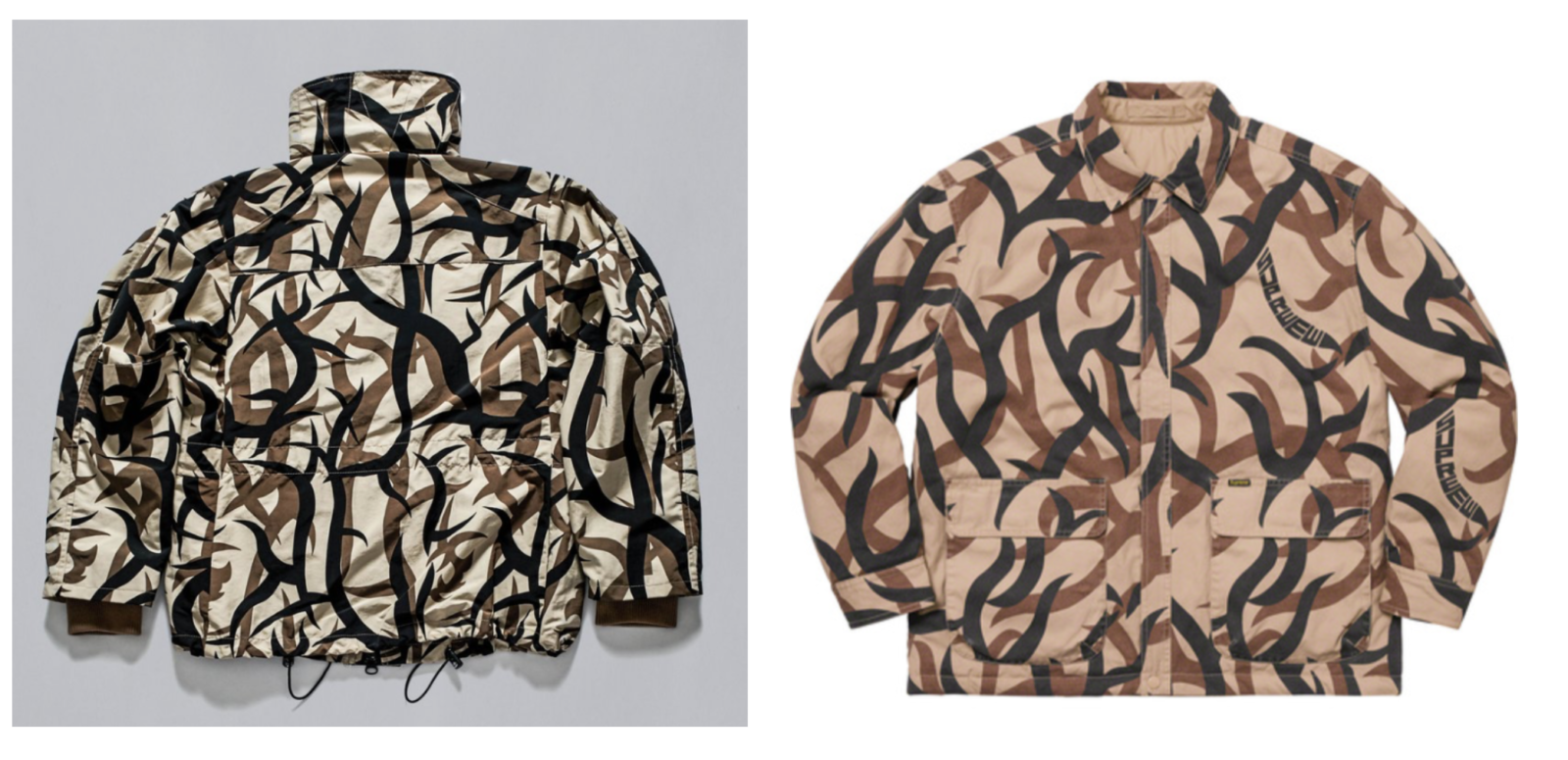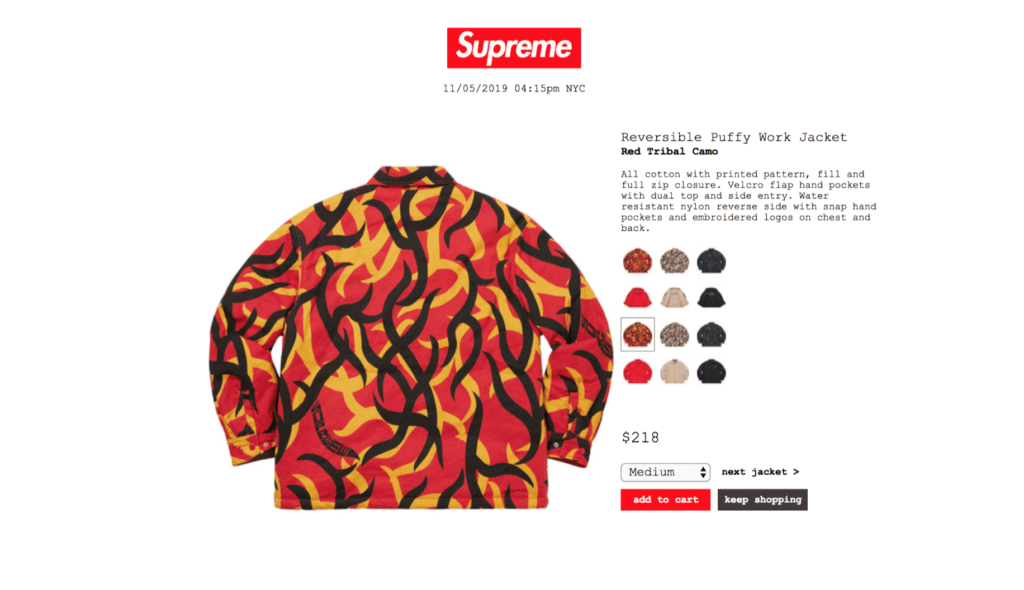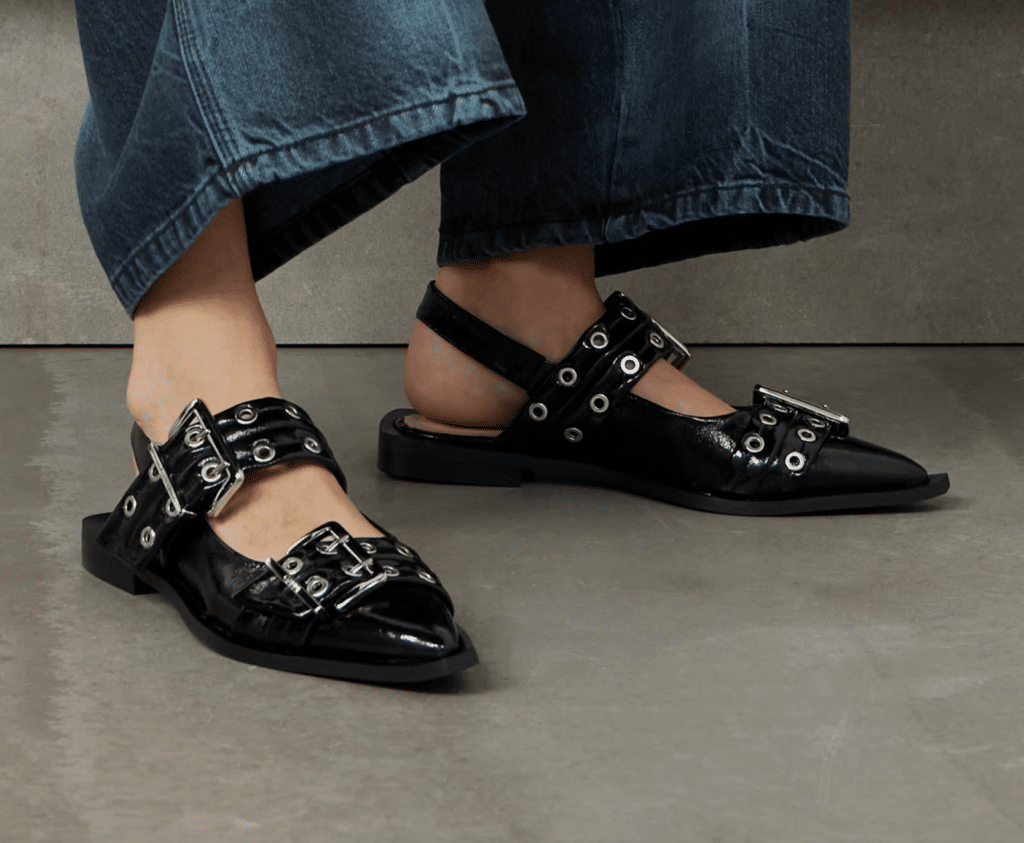Supreme is being sued for allegedly jacking another company’s camouflage print for a range of its ultra-hot-selling wares. According to the complaint that ASAT Outdoors LLC filed in a New York federal court this week, Supreme’s corporate entity Chapter 4 Corp. is on the hook for copyright infringement for its “unauthorized reproduction and public display” of a copyright-protected camo design that is “owned and registered by” Stevensville, Montana-based ASAT.
Apparel company ASAT asserts in the newly-filed lawsuit that Supreme – which maintains the title of one of the buzzy streetwear brands in the world – “copied [its camo] design and created derivative works of [it] and placed [them] on their apparel, such as hats, pants and jackets to sell on their website and in stores.” The problem with that, ASAT argues in its suit as first reported by WWD: “Chapter 4 did not license the design from [ASAT] for its apparel, nor did Chapter 4 have [ASAT’s] permission or consent to use or sell the design on its apparel,” such as its $218 “work” jackets and $145 cargo pants.
As such, ASAT claims that the New York-based streetwear brand has “willfully, intentionally, and purposefully, in disregard of and indifference to [ASAT’s] rights” infringed upon its exclusive right as the copyright holder to reproduce, copy, display, and make derivate works of – i.e., works based on or derived from an existing copyright-protected work – its protected camo print, thereby, running afoul of federal copyright law.
 ASAT camo jacket (left) & Supreme camo jacket (right)
ASAT camo jacket (left) & Supreme camo jacket (right)
With the foregoing in mind, ASAT is seeking monetary damages from Supreme, including but not limited to any profits that it made from its use of the allegedly infringing pattern, or “statutory damages up to $150,000 per work infringed for [Supreme’s] willful infringement of the design,” whichever is greater.
Interestingly enough, ASAT does not set forth trademark claims, such as infringement or false designation of origin, which it might be able to do, assuming it can show that consumers link its specific camo print – one that appears as though it just might be somewhat distinctive compared to others types of camo on the market – with a single source. Given its expansive retail footprint, namely, its stocking of its wares with retail giants like Walmart and speciality outdoors entities like Black Ovis, it just might be able to make a case for trademark protection (in lieu of registrations) and thus, infringement.
This is hardly the first headline-making case that has centered on camo. In March 2018, Kanye West’s Yeezy LLC was sued in federal court in Georgia by Columbus-based Jordan Outdoor Enterprises (“JOE”), which alleged that Yeezy Season 5 contained a handful of garments and accessories – from hoodies and pants to high heels and men’s boots – that make use of camouflage prints that are too similar to a number of its own copyright-protected camo prints. Following a back-and-forth between the parties, including a denial from Yeezy’s counsel that the brand made unauthorized use of JOE’s camo prints, the case was ultimately dismissed in September 2018 after Yeezy and JOE came to “a separate agreement to settle the claims and defenses.”
*The case is ASAT Outdoors, LLC v. Chapter 4 Corp., 1:19-cv-10462 (SDNY).











